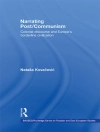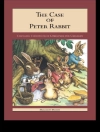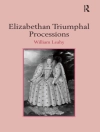This book is a study of the forensic theatricality of human rights claims in literary texts about slavery in the sixteenth and the nineteenth century in the Spanish Empire. The book centers on the question: how do literary texts use theatrical, multisensorial strategies to denunciate the violence against enslaved people and make a claim for their rights? The Spanish context is particularly interesting because of its early tradition of human rights thinking in the Salamanca School (especially Bartolomé de Las Casas), developed in relation to slavery and colonialism. Taking its point of departure in forensic aesthetics, the book analyzes five forms of non-narrative theatricality: allegorical, carnivalesque, tragicomic, melodramatic and tragic.
Table of Content
Chapter 1: Introduction: Slavery and the Forensic Theatricality of Human Rights in the Spanish Empire.- Part I: Slavery, Theatricality and Human Rights in the Spanish Empire.- Chapter 2:
Slavery and Human Rights in the Spanish Empire.- Chapter 3: Allegorical Theatricality: Horror and Human Rights in Bartolomé de las Casas’ Atrocity Story A Short Account of the Destruction of the Indies.- Part II: Comic Modes of Theatricality and Human Rights in Sixteenth- and Seventeenth Century Spain .- Chapter 4: Carnivalesque Theatricality: Defeat, Revenge and Collective Rights in Micael de Carvajal’s Court of Death and the Tragedy of Atawallpa’s Death.- Chapter 5: Tragicomic Theatricality: Forensic Presentism and a Dual Vision of Rights in Lope de Vega’s The New World Discovered by Christopher Columbus.- Part III: Tragic Modes of Theatricality and Human Rights in Nineteenth Century Cuba.- Chapter 6: Melodramatic Theatricality: Tableaux of Natural Rightsand Interracial Solidarity in Gertrudis Gómez de Avellaneda’s Sab.- Chapter 7: Tragic Theatricality: Vulnerability and Rights in Juan Francisco Manzano’s Autobiography of a Slave and Zafira.- Chapter 8: Epilogue: Forensic Theatricality and Human rights
About the author
Karen-Margrethe Simonsen is Associate Professor of Comparative Literature at Aarhus University, Denmark.












